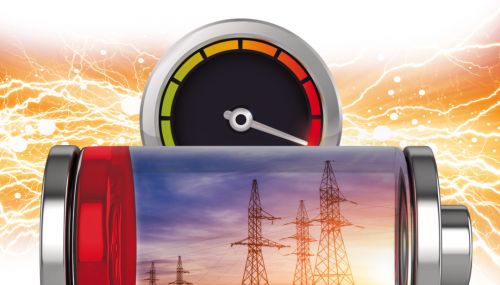Twenty-seven associations unite to challenge plan
New England Fuel Institute recently joined forces with 26 fellow associations to criticize a highly controversial proposal from President Obama that would use federal taxpayer money to encourage fuel switching.
The plan would require states to set aside 10 to 40 percent of federal Low Income Home Energy Assistance Program (LIHEAP) funds for use in programs designed to reduce energy costs among low income households. It would also provide $200 million in support of state partnerships with utilities and local community-based organizations. Fuel switching from oil and propane to so-called “less expensive” fuels was listed as something these programs and partnerships should focus on.
In a letter to the President, NEFI and the other associations stated that by switching from oil to gas, a consumer is “betting prices will remain low and supplies will always be reliable.” Otherwise it is unlikely that a homeowner will recoup the costs of converting a home, which averages $10,000 and can cost upwards of $18,000. “Most Americans cannot afford to gamble like that,” the letter says, “especially not low income families, and the Administration should not be in the business of encouraging such risks.”
NEFI was joined in sending the letter by Berks-Schuylkill Oil Heat Association, Connecticut Energy Marketers Association, Delaware Valley Fuel Dealers Association, Empire State Energy Association, Fuel Merchants Association of New Jersey, Home Comfort Alliance, Hudson Valley Oil and Energy Council, Kentucky Petroleum Marketers Association, Maine Energy Marketers Association, Massachusetts Energy Marketers Association, Mid-Atlantic Petroleum Distributors’ Association, National Association of Oil and Energy Service Professionals, Nevada Petroleum Marketers and Convenience Store Association, New York Oil Heating Association, North Carolina Petroleum and Convenience Marketers, Oil Heat Association of South Jersey, Oil Heat Institute of Long Island, Oil Heat Institute of Rhode Island, Oilheat Council of New Hampshire, Oilheat Manufacturers Association, Pacific Northwest Oil Heat Council, Pennsylvania Petroleum Association, Petroleum Marketers Association of America, Vermont Fuel Dealers Association, Virginia Petroleum, Convenience and Grocery Association and Washington Oil Marketers Association.
The following is an excerpt from the letter to President Obama.
Your proposal that LIHEAP funds be used to promote fuel switching ignores recent changes in the home heating market and the efficiency and environmental gains made by our industry.
Consider for example that today’s heating oil:
- Provides direct, personalized service to consumers. Our more than 6,000 mostly small, family-owned and operated businesses employ approximately 42,000 people. Unlike large utilities, our members personally deliver heating fuels and related services to American homes and have developed close personal relationships with many of these residents.
- Is competitively priced. Average residential heating oil prices are the lowest in five years and have declined nearly 40 percent since last winter alone. Many dealers now offer heating oil at prices that are on parity with – and in some cases lower than – those of competing fuels. Heating oil has held this advantage for 25 out of the last 32 years.
- Is efficient and renewable. Our industry has worked closely with states to lower the sulfur content of heating oil. This has dramatically improved air quality and cut home heating bills by reducing the need for service calls and increasing the longevity and efficiency of existing systems. Future heating appliances will be able to reach unprecedented levels of efficiency through the utilization of low sulfur fuels. Today’s heating oil is also blended with advanced biofuels to produce “Bioheat,” a low-carbon renewable fuel that is compatible with existing heating systems. Most of our dealers now sell up to five percent (B5) blends and in December 2014, ASTM established a specification for blends of up to 20 percent (B20).
- Is helping to address climate change. A full lifecycle analysis of carbon dioxide equivalent (CO2e) emissions has found ultra-low sulfur heating oil to have a lower global warming potential than natural gas when blended with as little as two percent biofuel and used with modern appliances. An industry-wide B20 blend will ultimately eliminate 1.3 billion gallons of conventional petroleum fuel and 9.26 million metric tons of carbon dioxide emissions per year.
- Utilizes a modern, safe and secure infrastructure. Since 1974, our bulk storage facilities have been required to comply with federal Spill Prevention, Control & Countermeasure regulations. These regulations were recently updated to ensure that our storage and distribution system is well maintained, modern, safe and secure. Also, unlike natural gas pipelines and storage facilities, our infrastructure does not leak methane, an extremely potent greenhouse gas.
A federal policy to encourage fuel switching would undermine these accomplishments and economic realities. Such a policy is also cost prohibitive and risky. While the average cost of converting a home from oil to natural gas is approximately $10,000, in some cases the total cost can exceed $18,000. Converting to a biomass (i.e., wood pellet) heating system can be similarly cost prohibitive. By switching fuels, a consumer is also betting prices will remain low and supplies will always be reliable. Most Americans cannot afford to gamble like that—especially not low income families—and the Administration should not be in the business of encouraging such risks.
For many Americans, the fuel that keeps their family warm is a personal choice based on safety and reliability. Rather than make such decisions for them, the Administration should encourage states to focus on fuel-neutral solutions that result in proven savings for low income households. For example, upgrading an existing system to an energy efficient modern appliance is less than one-third the cost of fuel switching and can result in immediate savings of more than 40 percent. Other alternatives can produce considerable savings at even lower costs. This includes regular system maintenance (up to 10 percent savings) and the installation of programmable thermostats (up to 10 percent savings) and modern electronic controls (up to 20 percent savings).
We stand ready to work together on cost-effective and fuel-neutral solutions to reduce energy costs for low income households and are prepared to meet with you to discuss these issues further.





